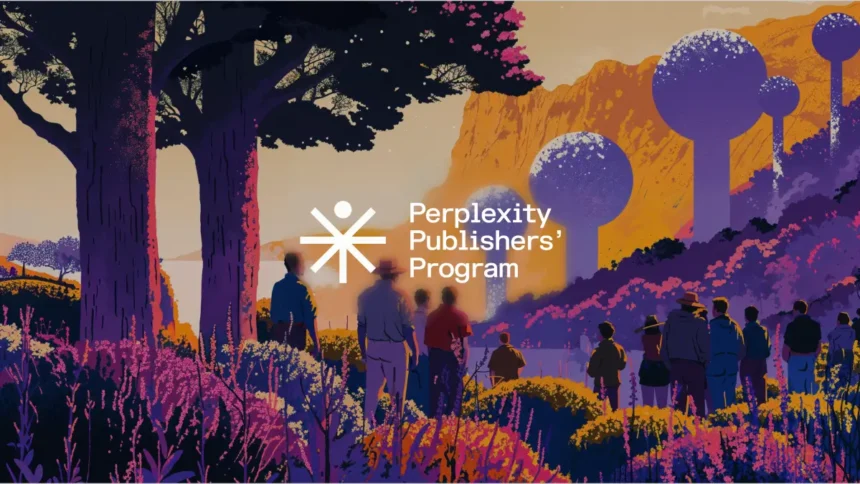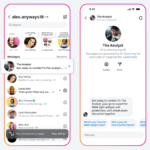Perplexity AI is gearing up to share advertising revenue with news publishers when its chatbot uses their content to respond to user queries. This move aims to address criticisms of plagiarism and unethical web scraping that have been directed at the startup.
Exploring the Publisher Program
Dmitry Shevelenko, Perplexity’s head of business, told TechCrunch that the company began exploring this revenue-sharing program back in January, even before publishers raised concerns. The primary motivation behind this initiative is to ensure the sustainability of accurate content generation. “How do we align ourselves with publishers?” Shevelenko asked. “We’re not cannibalizing publishers or competing with them, but we need to do our part to make sure that there are vibrant and diverse business models and revenue streams.”
Publishers Seeking New Monetization Strategies
As generative AI reshapes the way people search for information, publishers are actively seeking new monetization strategies. Perplexity’s initial group of publishing partners includes notable names like Automattic, Der Spiegel, Entrepreneur, Fortune, The Texas Tribune, and TIME. Under these multi-year deals, publishers will gain access to Perplexity’s APIs and developer support, enabling them to create custom answer engines on their own sites. Additionally, they’ll receive access to Perplexity’s Enterprise Pro offering, which includes enhanced data privacy and security capabilities.
Ads on the Horizon
While Perplexity has yet to start displaying ads on its platform, this feature is expected to roll out in the coming months. Shevelenko mentioned that the startup has secured partnerships with “top tier brands across every major consumer and B2B category.” For example, if a user queries about the best time to visit Tokyo, travel-related ads might appear. Any revenue generated from these ads will be shared with the publishers whose content helped answer those queries. Although specific details of the ad-revenue share remain undisclosed, Shevelenko indicated that it would be in the “double digit” percentage points.
Broader Media Partnerships
Other major media outlets, including The Atlantic, News Corp, The Financial Times, DotDash Meredith, Axel Springer, and Vox Media, have recently signed licensing and product deals with OpenAI. This is despite many journalists at these publications openly criticizing what they perceive as OpenAI’s unauthorized use of their content to train its AI models.
Michael Frazier, VP of data and operations at Entrepreneur Media, highlighted the evolving user behavior driven by platforms like social media and Google Search. “You have to meet your users where they want to be met,” he told TechCrunch. Frazier’s team is developing a tool to enable users to interact more dynamically with the publication’s content, a project that will benefit from Perplexity’s APIs.
Collaboration with ScalePost.ai
Perplexity collaborates with ScalePost.ai, a platform that fosters partnerships between publishers and AI companies, offering AI analytics to publishers. This includes insights into how Perplexity cites their content. “Understanding user intent and behavior, and how and where they’re finding us, will be incredibly valuable,” Frazier noted. This information will help Entrepreneur Media better serve its readers.
Addressing Concerns of AI Hallucinations
When asked about the potential risk of the Entrepreneur brand being associated with incorrect answers generated by AI chatbots—a common issue known as “hallucination”—Frazier acknowledged the concern. However, he expressed confidence in Perplexity’s efforts to minimize these inaccuracies.
Non-Preferential Treatment
Perplexity assured that publishers in its program will not receive preferential treatment in search queries, a promise also made by OpenAI to its media partners. Shevelenko stated that click-through rates are not the main focus of this program. “For the first time, a tech platform is actually giving publishers revenue share out the gate, and we think that’s powerful,” he explained. “The main value we bring to publishers is through our ad revenue share and access to Perplexity’s APIs and Pro subscription.”
Publisher Resistance
Despite the trend of collaboration with AI companies, not all publishers are on board. The New York Times, Raw Story, AlterNet, and The Intercept have sued OpenAI for allegedly using copyrighted works without proper credit. Condé Nast, the parent company of The New Yorker, Vogue, and Wired, sent a cease and desist letter to Perplexity, demanding it stop using its content. This move may have been influenced by a recent Wired report indicating Perplexity pulled content from web pages even when publishers requested not to.
Forbes also sent a similar letter, accusing Perplexity of plagiarizing one of its articles in its beta Perplexity Pages feature. However, Perplexity has not ceased using this content and instead invites those publishers to join its program. “We’re excited to partner with them,” said Shevelenko.
Conclusion
Perplexity AI’s initiative to share ad revenue with news publishers represents a significant step towards building a cooperative relationship with the media industry. By aligning its business model with the interests of content creators, Perplexity aims to foster a sustainable ecosystem where accurate and reliable information continues to thrive.










